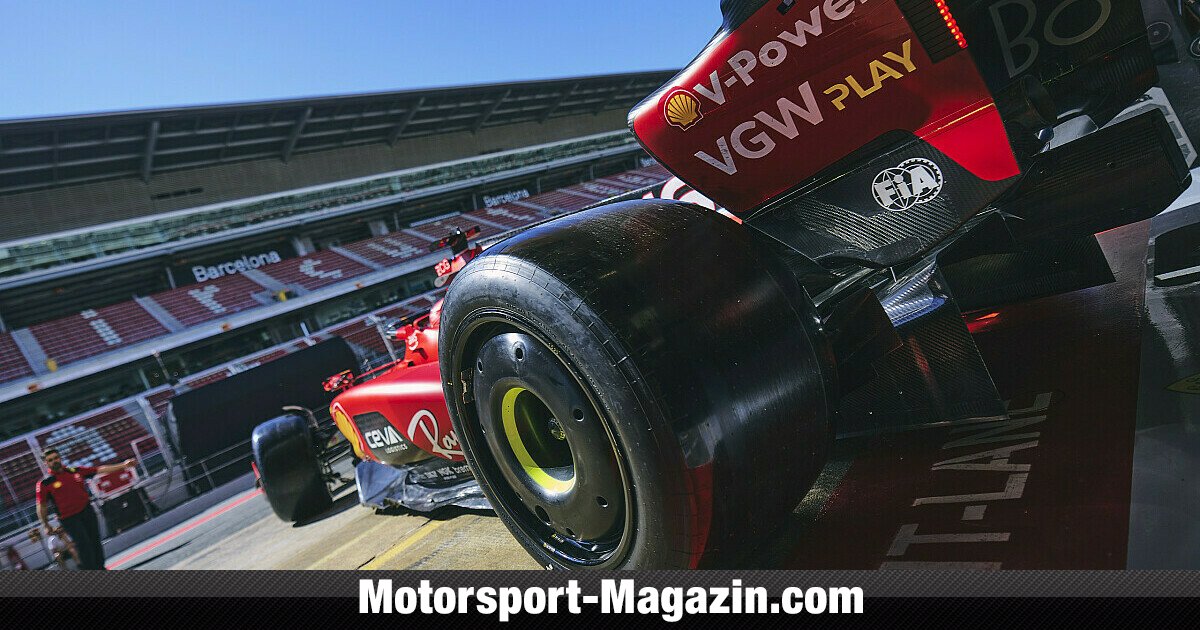- cross-posted to:
- formula1
- cross-posted to:
- formula1
Translation:
Bridgestone will not be returning to Formula 1. The Japanese company received a rejection. Pirelli will supply tires for the premier class until 2027.
The Formula 1 will probably continue to run on Pirelli tires beyond the 2024 season. Pirelli tires. According to information from Motorsport-Magazin.com Bridgestone lost out in the bidding process for the sole tire supplier. the short end of the stick. Bridgestone was the only competitor to Pirelli in the race. the race. Both Pirelli and Bridgestone received the green light from the FIA. Bridgestone received the green light. The FIA reviewed the capabilities of possible suppliers for their ability to supply tires for Formula 1 from 2025 to 2027. Formula 1 from 2025 to 2027. In addition to technical criteria, the FIA the sustainability of the tires, including production and logistics. and logistics.
The final decision between Bridgestone and Pirelli ultimately rested with the by the commercial rights holder of Formula 1, Liberty Media. Although, insiders from America report that Bridgestone made the more financially more lucrative offer, Formula 1 apparently decided in favor of Pirelli, the apparently decided in favor of Pirelli, which has been the sole supplier to the top class and has been with it through thick and thin. This could have been the of the Italians.
Even in the days when Formula 1 was a sport of chronically financially strapped teams, Pirelli supplied tires.
Pirelli supplied tires.
It is not only new teams that want to benefit from the boom in the premier class, but also tire manufacturers.
With the Japanese
Japanese manufacturer Bridgestone was not an unknown quantity. After years of tire warfare against Michelin, Bridgestone was the sole supplier of tires for Formula 1 from 2007 to 2011. 2011, Bridgestone was the sole supplier of tires for Formula One. Liberty Media opted for Pirelli.
The Italians began their current Formula 1 appearance in 2011 with narrow 13-inch tires. In 2017, they switched to the wide 13-inchers, before the 18-inch tires were introduced in 2022 - and will remain in use until at least 2025. in use until at least 2025. Another disadvantage of Bridgestone: a manufacturer would have to develop tires for 2025 in the current dimensions and then and then possibly supply a completely new product for 2026. The chassis regulations for the next generation of engines have not yet been finalized. not yet in place. In that respect, Formula 1 has the safe bank with Pirelli, although the planned switch to tires without heating blankets for 2024 is hanging by a thread. hanging by a thread. On Friday, the Formula 1 commission will decide whether the whether the heated blankets will be abolished next season. will be abolished. Pirelli has an almost finished product, but the very idea has met with little the idea has met with little approval from the drivers.
Vote on electric blanket ban in Spa
Should If the vote is against the ban on electric blankets, Pirelli will be able to use the 2023 product, which has been used in a reinforced version since Silverstone. reinforced version since Silverstone. Especially for 2025, a new tire manufacturer would also have become a political issue - Bridgestone would have to start from scratch in tire development. This would require extensive test drives would be necessary. Pirelli has already planned test drives until the end of the year. planned through to the end of the year.
With 494 Grand Prix appearances to date, Goodyear is the tire the tire manufacturer with the greatest Formula 1 history. Pirelli is currently in second place with 450 Grands Prix. The Italians already drove 1950, in the first season of the world championship. From 1959 to 1980 and from 1992 to 2010, Pirelli took a break from Formula 1.



There’s a difference between “uncompetitive” and “dangerous to operate” though. There is no way that Michelin did not get it wrong in that instance, and dangerously so.
They didn’t get it wrong though. The tyres were built to the one stop specifications, the softer sidewall was because of that rule.
But that combined with fundamental suspension setups on the Toyotas, caused the issues we saw that day. And issue that was exacerbated by politics.
It doesn’t matter if they built them to spec. If they failed and their competitors product didn’t, and the replacement tyres that were supposed to work also failed in the same way… they got it wrong.
Replacement tyres they weren’t allowed to use. There is no way to tell if those would have failed.
And again only the Toyotas had the issue, and without Indiana state law on criminal liability. The other Michelin teams would have ran.
We don’t say Bridgestone brought the wrong tyres to the 2010 Canadian GP.
I have only wikipedia to refer to here but “The replacement tyres flown in, which were of the type used in the Spanish Grand Prix earlier that year, turned out to have the same problem when tested.”
So … sounds to me like they’d have failed too.
We certainly could say that Bridgestone supplied bad tyres to 2010 Canada, why not?